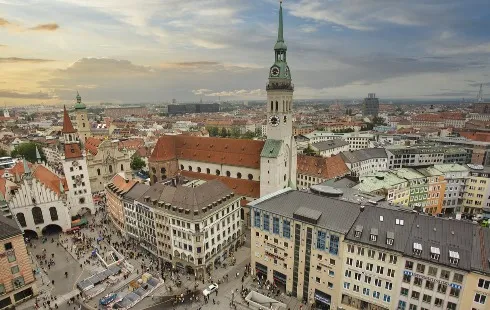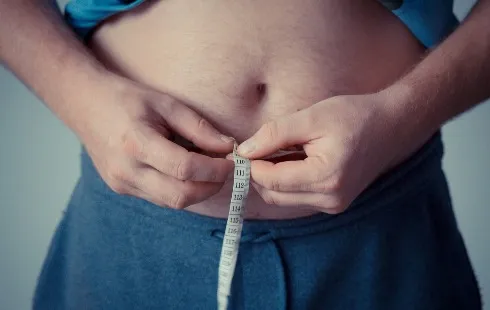
Gonadorelin Peptide: A Gateway to Understanding Endocrine Dynamics
Section: Science
 In a stark contrast to pre-COVID times, nearly one-third more cyclists now traverse the streets of Munich, while the number of cars on the road has decreased by five percent. Munich's Green Party Mayor, Katrin Habenschaden, presented these new statistics at the Mobility Congress, yet she remains cautiously optimistic about the city's progress. By Andreas Schubert
In a stark contrast to pre-COVID times, nearly one-third more cyclists now traverse the streets of Munich, while the number of cars on the road has decreased by five percent. Munich's Green Party Mayor, Katrin Habenschaden, presented these new statistics at the Mobility Congress, yet she remains cautiously optimistic about the city's progress. By Andreas Schubert
Despite increasing vehicle registrations, car traffic in Munich has experienced a slight decline, accompanied by a surge in cyclists. The Mobility Department has recently released updated data on the city's traffic trends during the second Munich Mobility Congress. According to the report, car traffic has decreased by five percent, while bicycle traffic has seen a significant 30 percent increase during the first half of 2023 compared to the same period in 2019. This timeframe was chosen to avoid distortions caused by the COVID-19 pandemic, which led to a general decrease in traffic due to lockdown measures.
The volume of bicycle traffic in Munich is monitored at six locations using sensors beneath the asphalt: Arnulfstraße near the main train station, Birketweg near Hirschgartens, Bad-Kreuther-Straße in Berg am Laim, Erhardtstraße near the Deutsches Museum, Margaretenstraße at Harras, and Rudolf-Harbig-Weg in Olympiapark. In contrast, car traffic is monitored by approximately 800 sensors throughout the city, with 200 of them positioned on open roads like the Mittlerer Ring, while the rest are installed at traffic intersections.
The figures were presented on Sunday by Mayor Katrin Habenschaden, who, while acknowledging the positive trends, refrained from celebrating prematurely. She stated, "We have no reason to celebrate yet because we are still far from our goals for achieving a balanced mobility mix." Nevertheless, she finds the developments encouraging, indicating that eco-friendly and space-saving modes of transportation are gaining popularity in Munich. She added, "Our task now is to turn this initial trend into a long-term development. We can achieve this through improved public transportation options, safe cycling and walking paths, a substantial expansion of car-sharing services, and well-executed citizen engagement." According to Habenschaden, Munich's shift towards sustainable transportation has the potential to succeed "if we continue to consistently follow the path we've embarked upon."
In public transportation, passenger numbers have nearly returned to pre-pandemic levels, according to the Mobility Department. However, the high demand for public transportation poses both benefits and challenges. Lowering fares alone won't suffice for achieving the desired transportation transition. Ingo Wortmann, CEO of the Munich Transport Company (MVG) and President of the Association of German Transport Companies, emphasized the importance of expanding public transportation services. He mentioned that the attractive Germany Ticket, currently available for 49 euros, has significantly reduced revenue for transportation companies. The ticket has been a commercial success, with 11 million subscriptions sold nationwide. Approximately 46 percent of users switched from existing subscriptions, around 44 percent were previous public transportation customers without subscriptions, and eight percent seldom used public transportation before (rounded to 100 percent due to rounding).
The federal and state governments have provided 1.5 billion euros each for this initiative. However, Wortmann revealed that this so-called additional funding obligation will no longer exist in the next two years.
The question remains: Who will fund new vehicles, infrastructure expansion, and new personnel in the driver's seats and workshops? This is a question that has not been resolved. Under the Municipal Transport Financing Act (GVFG), Germany provides two billion euros annually for public transportation across the country. Yet, Wortmann argued that the Munich Transport Association alone would require two billion euros annually until 2040 to adequately expand public transportation in line with climate protection goals.
Municipalities alone cannot bear this financial burden, especially considering the multi-billion-euro projects in Munich. For example, the extension of U5 to Pasing costs nearly one billion euros, and cost estimates for a potential U-Bahn Line U9 range from four billion to over ten billion euros. The construction of a future U-Bahn station beneath the main train station has been approved by the city, with approximately 663 million euros allocated for construction and planning. However, funding for this project remains uncertain.
There are ample funds available for public transportation support. The Federal Environment Agency lists environmentally harmful subsidies such as coal mining subsidies and the often-cited company car privilege, amounting to more than 65 billion euros annually. Transport companies have long advocated for a redistribution of these funds.
Stadtplan beim Radl © Muenchen Tourismus Christian Kasper

Section: Science

Section: Health

Section: Arts

Section: Health

Section: Science

Section: News

Section: News

Section: Health Insurance

Section: Health

Section: News
Health Insurance in Germany is compulsory and sometimes complicated, not to mention expensive. As an expat, you are required to navigate this landscape within weeks of arriving, so check our FAQ on PKV. For our guide on resources and access to agents who can give you a competitive quote, try our PKV Cost comparison tool.
Germany is famous for its medical expertise and extensive number of hospitals and clinics. See this comprehensive directory of hospitals and clinics across the country, complete with links to their websites, addresses, contact info, and specializations/services.
The granddaughter of Claire Zachanassian makes a return to Güllen, the impoverished hometown of her late grandmother, for a performance. Having never fully engaged with her grandmother's past, she is eager to finally discover Güllen. The sound of her last name stirs the entire town into action.



No comments yet. Be the first to comment!